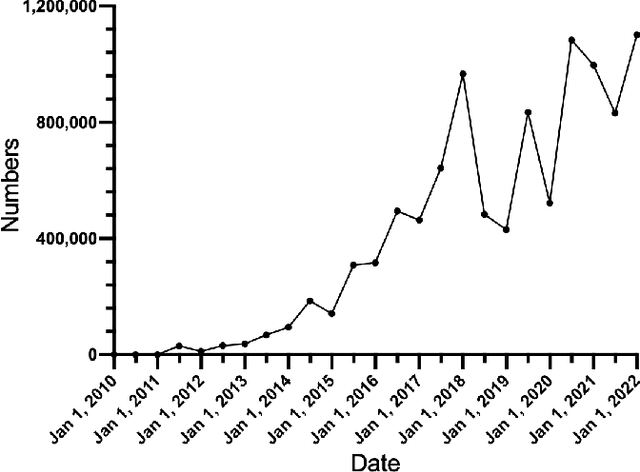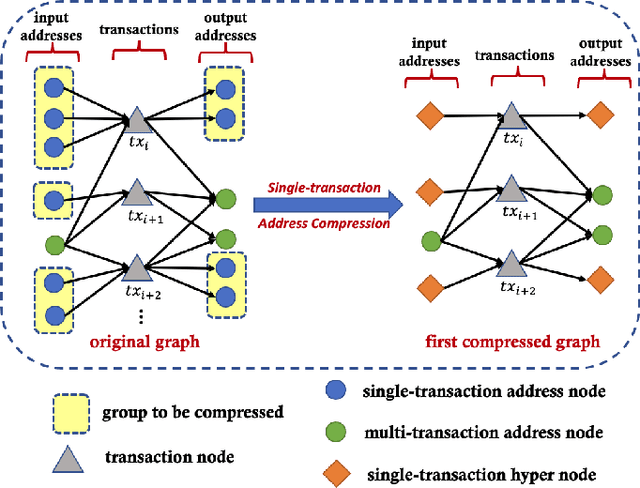Yunyang Huang
Demystifying Bitcoin Address Behavior via Graph Neural Networks
Nov 26, 2022



Abstract:Bitcoin is one of the decentralized cryptocurrencies powered by a peer-to-peer blockchain network. Parties who trade in the bitcoin network are not required to disclose any personal information. Such property of anonymity, however, precipitates potential malicious transactions to a certain extent. Indeed, various illegal activities such as money laundering, dark network trading, and gambling in the bitcoin network are nothing new now. While a proliferation of work has been developed to identify malicious bitcoin transactions, the behavior analysis and classification of bitcoin addresses are largely overlooked by existing tools. In this paper, we propose BAClassifier, a tool that can automatically classify bitcoin addresses based on their behaviors. Technically, we come up with the following three key designs. First, we consider casting the transactions of the bitcoin address into an address graph structure, of which we introduce a graph node compression technique and a graph structure augmentation method to characterize a unified graph representation. Furthermore, we leverage a graph feature network to learn the graph representations of each address and generate the graph embeddings. Finally, we aggregate all graph embeddings of an address into the address-level representation, and engage in a classification model to give the address behavior classification. As a side contribution, we construct and release a large-scale annotated dataset that consists of over 2 million real-world bitcoin addresses and concerns 4 types of address behaviors. Experimental results demonstrate that our proposed framework outperforms state-of-the-art bitcoin address classifiers and existing classification models, where the precision and F1-score are 96% and 95%, respectively. Our implementation and dataset are released, hoping to inspire others.
 Add to Chrome
Add to Chrome Add to Firefox
Add to Firefox Add to Edge
Add to Edge